Emergency HVAC Bonnybridge
Top Emergency AC Repair in Bonnybridge
Receive multiple 24/7 HVAC Repair quotes for your project today! Compare profiles, reviews, accreditations, portfolio, etc... and choose the best deal.

Paisley Boiler Installations
4.953 reviews115 Abercorn Street, 115 Abercorn St., Paisley, PA3 4AT, GBPaisley Boiler Installations is a team of experienced local plumbers and gas engineers fully certified and insured, serving Paisley and Glasgow. We offer a full range of plumbing, heating and boiler related services, including gas boiler replacement, boiler servicing, boiler repair, landlord gas safety checks, gas central heating services, central heating installation, commercial boiler installation, commercial boiler room services, commercial boiler services, oil fired boiler services and LPG boiler installation. We aim to provide brilliant customer service at great local prices. We always suggest looking at repairing a boiler or heating system before replacing it. Only if the repair is too expensive, because of parts being out of manufacture for instance, would we suggest replacement. But if a new boiler installation is the best choice then we can give you all the options and help you choose the best solutions for your home and budget.
- Services
- Why Us?
- Accreditations
- Testimonials
- Gallery
Get Quote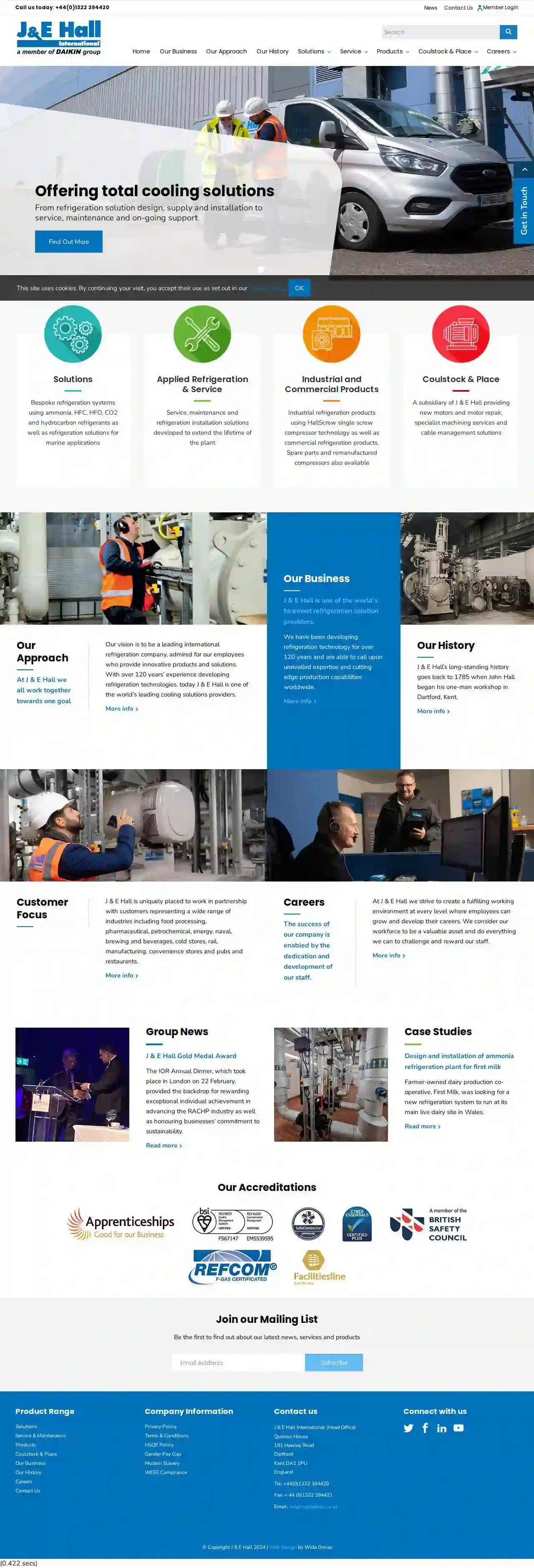
J & E Hall Ltd
44 reviewsQuestor House, 191 Hawley Road, Dartford, DA1 1PU, GBJ & E Hall is a world-leading provider of cooling solutions, boasting over 120 years of experience in refrigeration technology development. With a global reach and unmatched expertise, they offer a comprehensive range of products and services, from bespoke refrigeration systems to industrial and commercial refrigeration solutions. Their commitment to innovation and customer satisfaction is evident in their cutting-edge production capabilities and dedication to providing tailored solutions for every need. J & E Hall's legacy of excellence is built on a foundation of reliability, quality, and a deep understanding of the evolving demands of the refrigeration industry.
- Services
- Why Us?
- Accreditations
- Gallery
Get Quote
Home Heating Installations
522 reviewsBerryknowe Cottage, Tintock, Kirkintilloch, G66 2TA, GBWe are a small, second generation family heating company, established in Glasgow for over 30 years. We specialise in new boiler installations, boiler repairs, central heating installations and central heating repairs. Our engineers have a minimum of 18 years experience, are fully qualified and will always arrive on site with a friendly, helpful and professional attitude. Your satisfaction and peace of mind is our goal on every visit. When you meet our team, you'll see why families and home-owners have come back to us over and over again. As well as being highly qualified, we also carry £5m public liability insurance, our engineers have all undertaken an enhanced CRB check, and for extra peace of mind we can be found on the Gas Safe website (Registration 228313). You can have complete confidence, we are the experts you can rely on. Our job is to make sure you are comfortable, warm and safe in your home with our heating services. We offer a range of plumbing and heating services, working on all types of systems, specialising in a range of different manufacturers appliances.
- Services
- Why Us?
- Accreditations
- Gallery
Get Quote
Atlas Services Solutions
43 reviewsPavilion 2, 3 Dava Street, Glasgow, G51 2JA, GBAtlas Services Solutions are a leading Air Conditioning service business and part of the established Atlas Group. With over 50 years’ experience across the team, we pride ourselves on delivering an outstanding service for our clients, with all works completed – service and maintenance – fully compliant to both SFG20 regulations and manufacturers standards of quality. We not only work with our own clients, but also provide our services to other prospective clients, including other service providers and their clients. Our team members are highly skilled, fully qualified, conscientious engineers, able to overcome any challenge not only individually, but also as part a team, consistently providing our clients with a superior level of service. As a leading service solutions company and maintenance provider, we can provide all types of service works including, fault finding, commissioning, health checks, and maintenance for any business on VRV, VRF, Split Systems, Water Chillers, Heat Pumps, Refrigeration, Controls and Air Handling Units. To further enhance our range of services, we also provide- Comprehensive System Health Checks Degradation Reports Service Reports System Design Reports Our team are fully certified, qualified, with full training within the air conditioning industry. To ensure we keep up to date with an ever evolving industry, we ensure our team’s knowledge of new technologies and system design types is always kept up to date with manufacturer specific training within all sectors. We understand the needs and priorities of our clients and aim to provide the best service we can. Our engineers work with manufacturer specific testing equipment and software-based monitoring tools to ensure our high standards are consistently met. We work closely with our customers to tailor our services and budgets to meet their needs and priorities. Craig and his team at Atlas service solutions provide an exceptional level of professionalism and equipment knowledge. Their attention to detail and client requirements is superb and with the highest efficiency available. We look forward to continuing our working relationship with them moving forward within the industry cross group As a fully approved Daikin air conditioning UK service partner, Atlas Services Solutions Ltd has a long-standing relationship and are ful
- Services
- Why Us?
- Accreditations
- Our Team
- Testimonials
- Gallery
Get Quote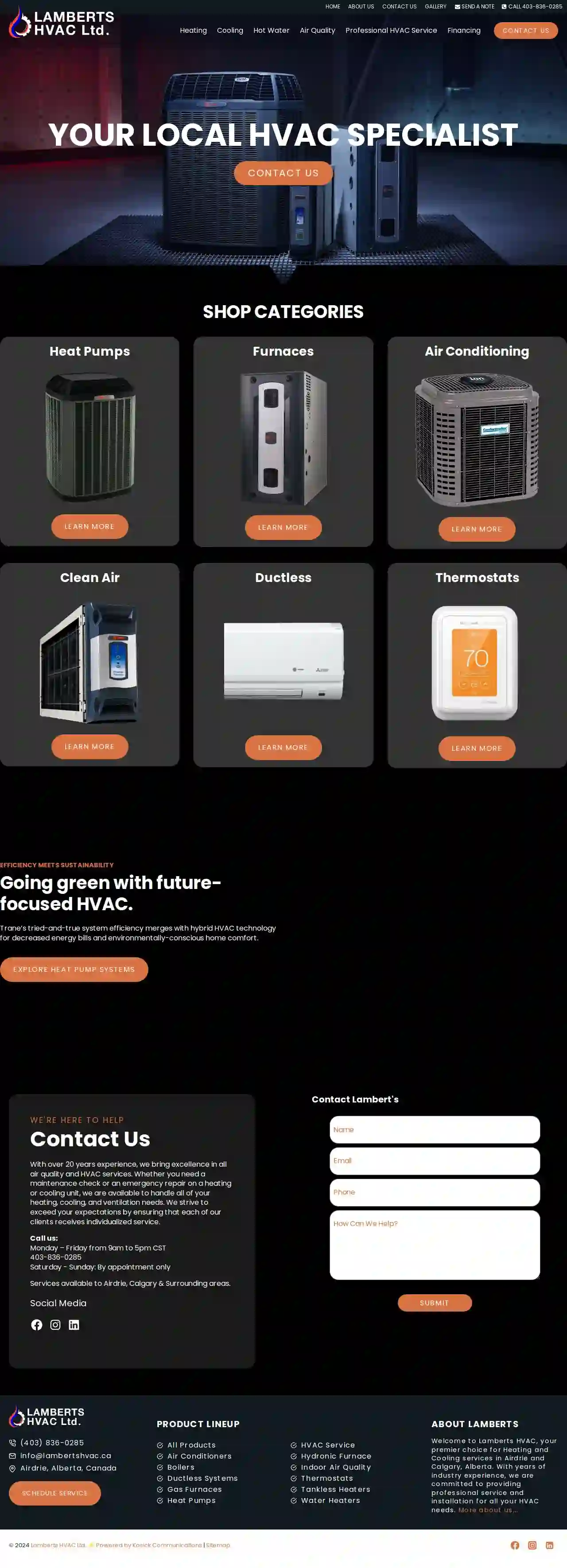
Lamberts HVAC Ltd.
558 reviewsAirdrie, Alberta, T4A, GBWelcome to Lamberts HVAC, your premier choice for Heating and Cooling services in Airdrie and Calgary, Alberta. With years of industry experience, we are committed to providing professional service and installation for all your HVAC needs.
- Services
- Why Us?
- Gallery
Get Quote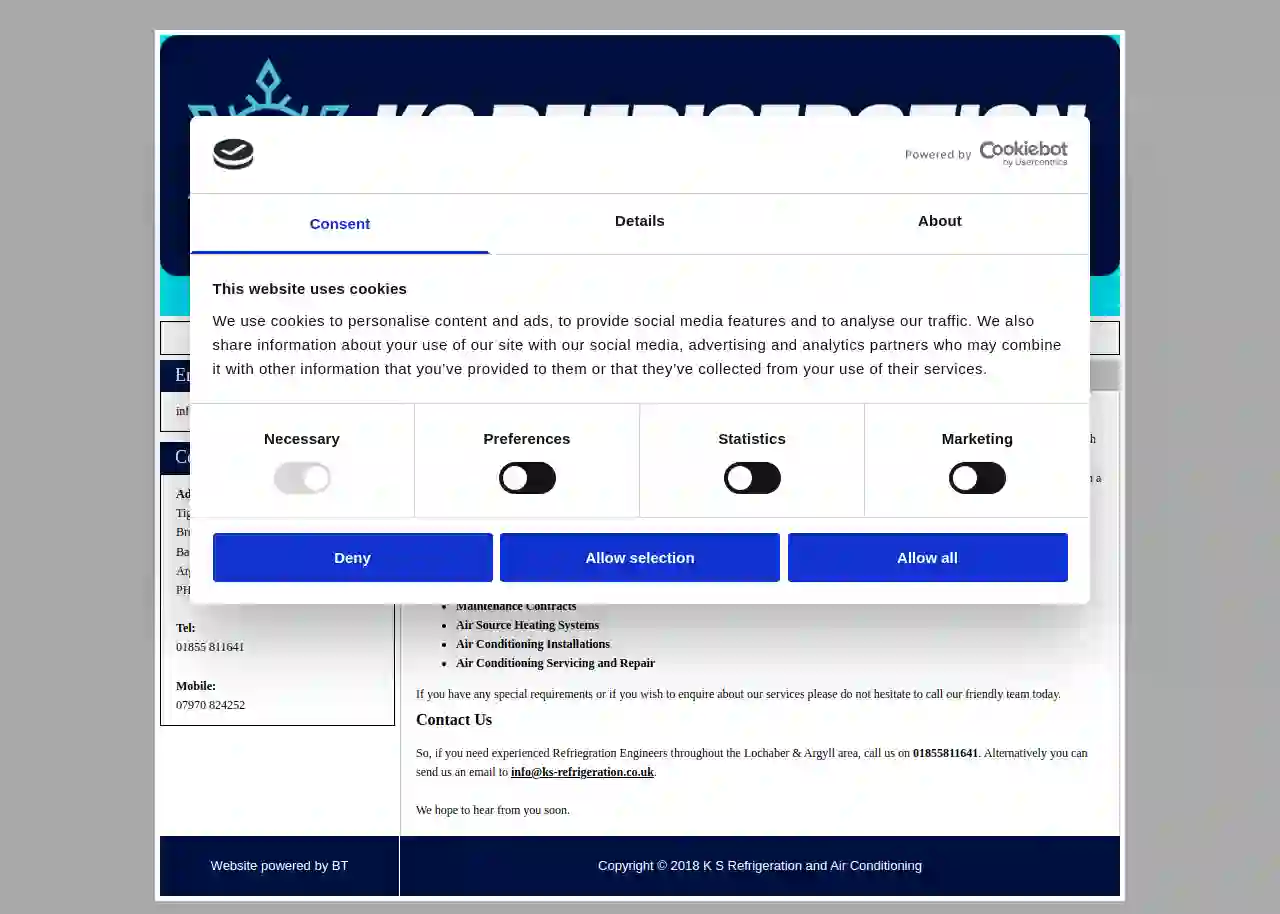
KS Refrigeration
52 reviewsBallachulish, Tigh ArdBrecklet, PH49 4JG, GBWelcome to KS Refrigeration and Air Conditioning, a family run business specialising in Refrigeration, Air Conditioning and Heat Pump Systems. We are a reliable and experienced team of engineers providing Refrigeration and Air Conditioning services in Lochaber and Argyll. Our team is approved by REFCOM, Chas and BESA, ensuring a professional service for our customers. We offer a range of services including Refrigeration Sales, Refrigeration Installations, Refrigeration Servicing and Repair, Maintenance Contracts, Air Source Heating Systems, Air Conditioning Installations, and Air Conditioning Servicing and Repair. If you have any special requirements or would like to enquire about our services, please do not hesitate to contact us.
- Services
- Why Us?
- Accreditations
- Gallery
Get Quote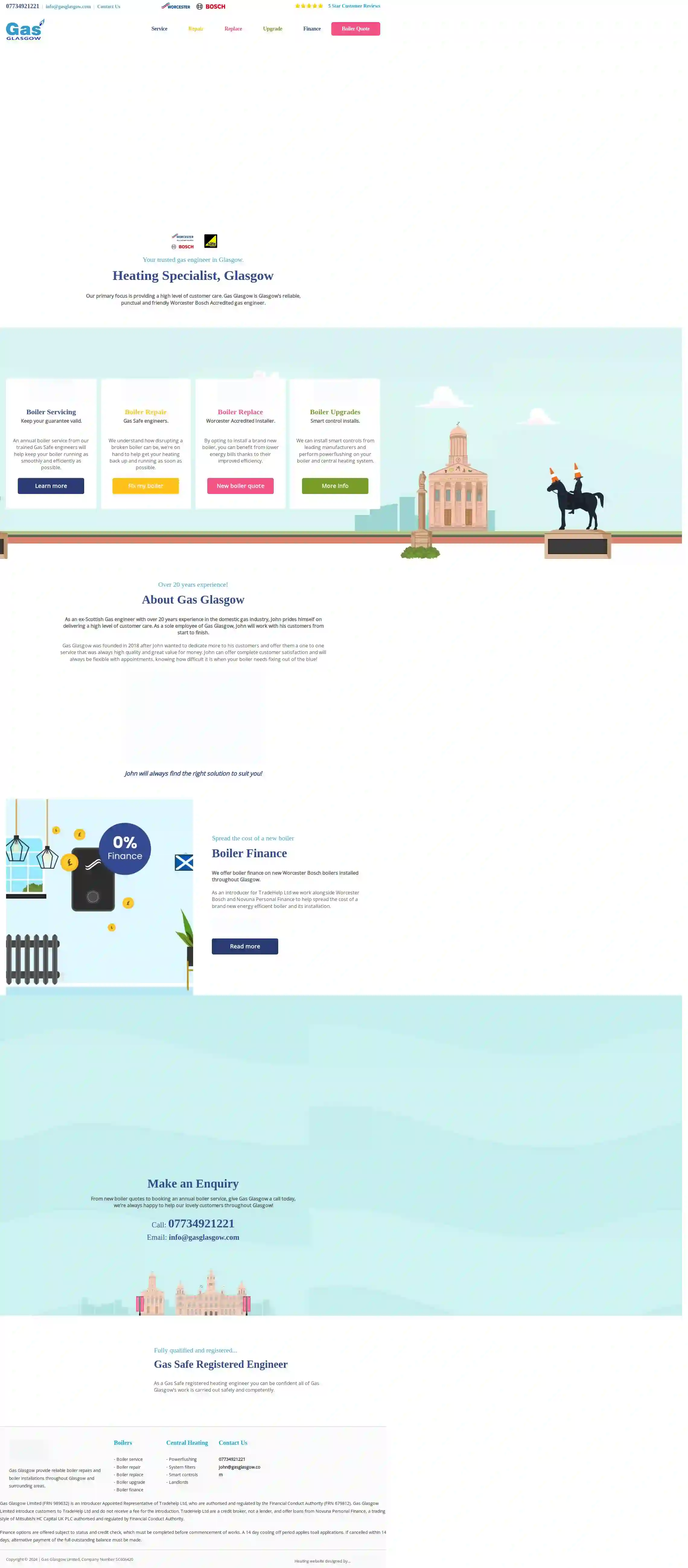
Gas Glasgow
566 reviewsGlasgow, GBWith over 20 years experience, Gas Glasgow are a Worcester Bosch Accredited installer offering high quality boiler installations and services throughout Glasgow. Our primary focus is providing a high level of customer care. Gas Glasgow is Glasgow’s reliable, punctual and friendly Worcester Bosch Accredited gas engineer. As an ex-Scottish Gas engineer with over 20 years experience in the domestic gas industry, John prides himself on delivering a high level of customer care. As a sole employee of Gas Glasgow, John will work with his customers from start to finish. Gas Glasgow was founded in 2018 after John wanted to dedicate more to his customers and offer them a one to one service that was always high quality and great value for money. John can offer complete customer satisfaction and will always be flexible with appointments, knowing how difficult it is when your boiler needs fixing out of the blue! John will always find the right solution to suit you!
- Services
- Why Us?
- Accreditations
- Our Team
- Testimonials
- Gallery
Get Quote
jd gas services
Unit 1, 123 High Street, Birmingham, B12 9AA, GBJ D Gas Services is a family-run business based in the heart of the UK. We pride ourselves on providing a reliable and professional service to all our customers. We are fully Gas Safe registered and have over 20 years of experience in the gas industry. We offer a wide range of services, including boiler installations, repairs, servicing, and landlord safety checks. We are committed to providing our customers with the highest quality service at competitive prices. Our team of experienced engineers are fully qualified and insured, and we are always happy to answer any questions you may have. We offer a 24-hour emergency call-out service, so you can be sure that we are always there when you need us. We are a local business, and we are proud to serve our community. We are committed to providing our customers with the best possible service, and we are always looking for ways to improve our business.
- Services
- Why Us?
- Accreditations
- Our Team
- Testimonials
Get Quote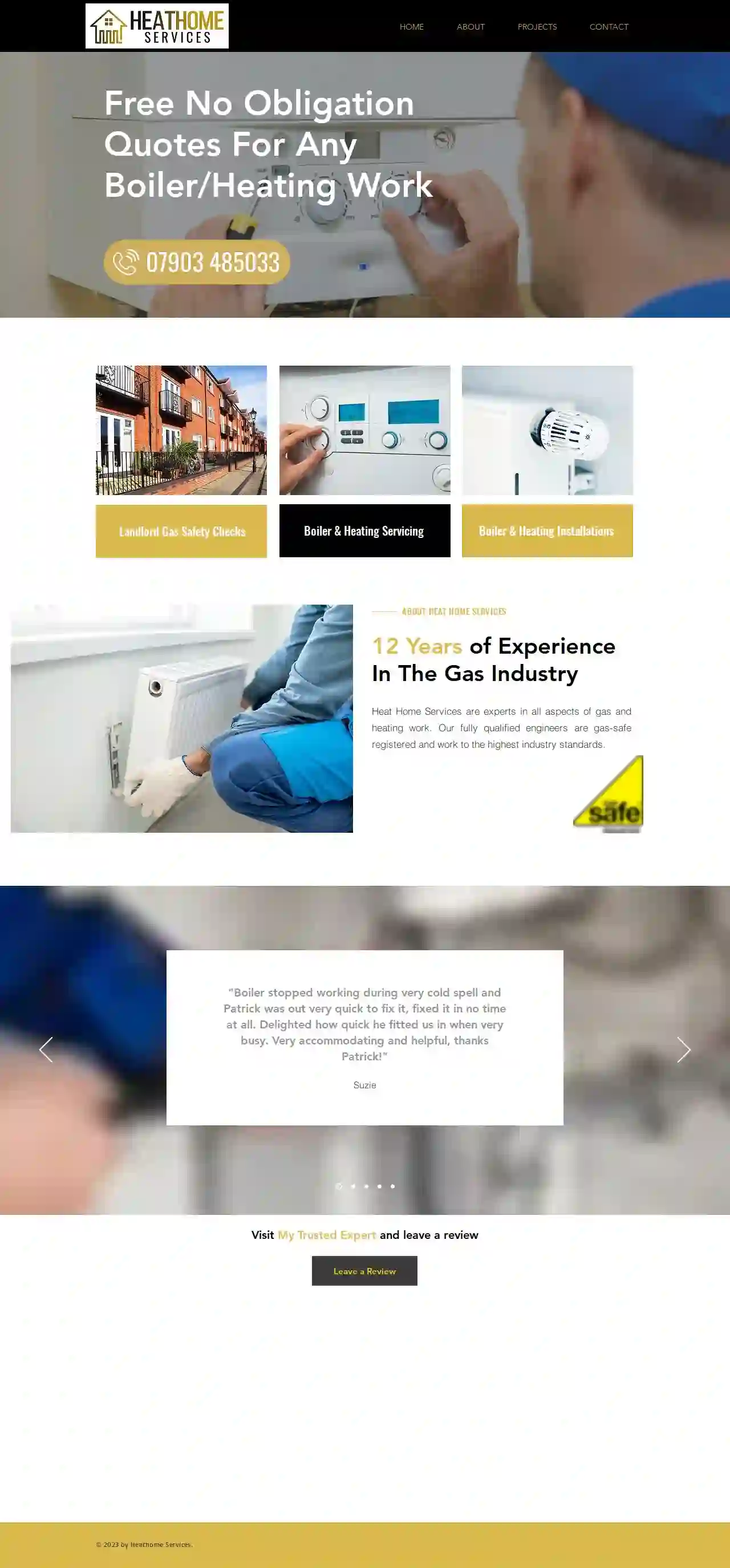
Heat Home Services
Glasgow, GBHeat Home Services are experts in all aspects of gas and heating work. Our fully qualified engineers are gas-safe registered and work to the highest industry standards.
- Services
- Why Us?
- Testimonials
- Gallery
Get Quote
Heatsafe Heating Ltd
58 reviewsTop floor Office 1 Canalbank Ind Est, Seabegs Rd, FK4 2BP, GBHeatsafe Heating Ltd was established in 2011. We aren’t like your average heating company, we do things the Heatsafe way. Which has helped us build our business through high standards of work and word of mouth referrals. Read More
- Services
- Why Us?
- Accreditations
- Our Team
- Testimonials
- Gallery
Get Quote
Over 12,692+ HVAC Businesses on our directory
Our HVAC companies operate in Bonnybridge & surrounding areas!
HVACCompaniesHub has curated and vetted Top HVAC Businesses near Bonnybridge. Find a top & reliable business today.
Frequently Asked Questions About Emergency HVAC Services
- MERV Rating: The Minimum Efficiency Reporting Value (MERV) indicates the filter's ability to trap particles. Higher MERV ratings mean better filtration.
- Filter Size: Make sure you select the correct size filter for your HVAC unit.
- Filter Type: Different types of filters are available, including pleated filters, HEPA filters, and electrostatic filters.
- Your Needs: Consider your indoor air quality needs. If you have allergies or pets, a higher MERV filter may be beneficial.
Are emergency HVAC services more expensive?
What is a zoning system, and do I need one?
What is a dehumidifier, and do I need one?
How do I choose the right HVAC filter?
Are emergency HVAC services more expensive?
What is a zoning system, and do I need one?
What is a dehumidifier, and do I need one?
How do I choose the right HVAC filter?
- MERV Rating: The Minimum Efficiency Reporting Value (MERV) indicates the filter's ability to trap particles. Higher MERV ratings mean better filtration.
- Filter Size: Make sure you select the correct size filter for your HVAC unit.
- Filter Type: Different types of filters are available, including pleated filters, HEPA filters, and electrostatic filters.
- Your Needs: Consider your indoor air quality needs. If you have allergies or pets, a higher MERV filter may be beneficial.